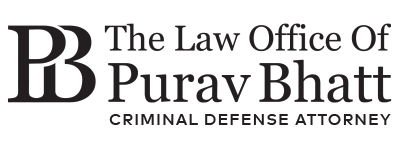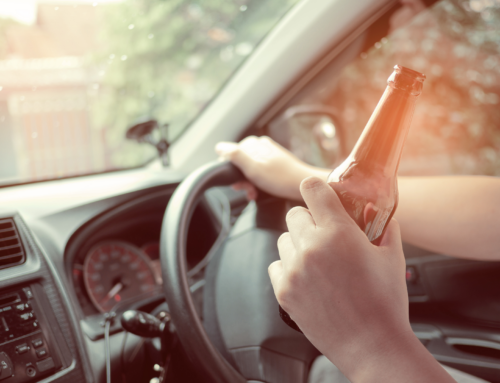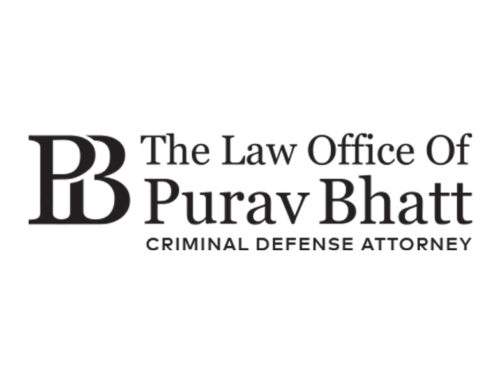If you’re facing DUI charges in Chicago, you’re likely wondering whether this mistake will follow you for the rest of your life. The harsh reality is that under Illinois law, DUI convictions become permanent marks on your record that cannot be expunged or sealed—making them visible to employers, landlords, and licensing boards indefinitely.
However, there are critical exceptions and strategic opportunities that could change everything about your case outcome. While most people focus on whether they can clear their record after a criminal conviction, the real question is: how can an experienced Chicago DUI attorney position your case to avoid that permanent conviction altogether?
In this comprehensive guide, we’ll explain exactly when DUI records can be cleared, reveal little-known legal strategies that could get your charges reduced to expungeable offenses, and show you why having the right legal representation from day one isn’t just important—it’s the difference between a clean record and a lifelong consequence that could impact your career, housing, and future opportunities.
Before making any decisions that could affect your future, consult with a skilled legal advocate who knows how to navigate Chicago’s complex DUI laws. At The Law Office of Purav Bhatt, P.C., we focus on building strategies that protect your record and safeguard your opportunities. Reach out today at 773-791-9682 to discuss your case and understand the options that may be available to you.
👉Also Read: What Are the Legal Consequences of a Second DUI in Chicago? Insights from a DUI Criminal Defense Lawyer
Understanding DUI Expungement in Illinois
Illinois takes an exceptionally hard line on DUI offenses, treating them as serious public safety matters that warrant permanent consequences. Unlike many other criminal charges, DUI convictions in Illinois are specifically excluded from both expungement and sealing eligibility—meaning that once you’re convicted, that record becomes a permanent part of your background that employers, landlords, professional licensing boards, and insurance companies can access indefinitely.
The Critical Distinction: Conviction vs. Non-Conviction
Here’s where understanding the legal nuances becomes crucial. While DUI convictions cannot be expunged, there are specific scenarios where you can clear your record:
- Case Dismissed: If the prosecutor drops the charges or the court dismisses your case
- Not Guilty Verdict: If you’re acquitted at trial
- Charges Never Filed: If you were arrested but never formally charged
When any of these non-conviction outcomes occur, you become eligible to petition for expungement, which completely erases the arrest and charge from your record—as if the incident never happened.
Why This Distinction Matters
The difference between a dismissal and a conviction isn’t just legal semantics—it’s the difference between a clean background check and a permanent mark that could affect your career, housing applications, professional licenses, and insurance premiums for decades.
Difference Between Expungement and Sealing
Understanding the distinction between expungement and sealing is crucial for anyone looking to clear their criminal record in Illinois, as each option provides different levels of protection and accessibility.
Expungement: Complete Record Erasure
Expungement is the gold standard of record clearing. When a record is expunged, it is destroyed and removed from all databases—both public and governmental. This means:
- The arrest and charges are treated as if they never occurred
- You can legally answer “no” when asked about arrests or charges on job applications
- Background checks will show no trace of the incident
- Even law enforcement agencies lose access to the expunged records
- The psychological and practical burden of carrying this record is eliminated entirely
Sealing: Hidden but Not Destroyed
Record sealing provides significant privacy protection but falls short of complete erasure:
- Records are hidden from public view and most background checks
- Employers, landlords, and licensing boards typically cannot access sealed records
- However, law enforcement agencies retain access for investigative purposes
- Courts can still access sealed records under specific legal circumstances
- You may still need to disclose sealed records in certain professional licensing situations
Why This Matters for DUI Cases
Since DUI convictions cannot be expunged or sealed in Illinois, these options only become relevant if your case results in a dismissal, acquittal, or if your attorney successfully negotiates a reduction to a different charge (like reckless driving) that may be eligible for sealing. This underscores why the outcome of your original DUI case is so critical—and why experienced legal representation can make all the difference in your future.
👉Also Read: Facing Legal Trouble? Turn to Chicago’s Top Criminal Defense Attorney For a Strong Defense
The Role of an Experienced DUI Lawyer
When facing DUI charges in Chicago, the attorney you choose can literally determine whether you’ll carry a permanent criminal record for the rest of your life. The difference between a conviction and a dismissal—and your future ability to clear your record—often comes down to the strategic decisions and legal skill your lawyer brings to your case from day one.
Strategic Case Positioning for Record Clearing
An experienced Chicago DUI attorney doesn’t just defend against the immediate charges—they position your case with your long-term future in mind:
- Charge Reduction Negotiations: Skilled criminal defense attorneys can often negotiate DUI charges down to lesser offenses like reckless driving, which may be eligible for sealing, unlike DUI convictions
- Evidence Suppression: Identifying constitutional violations, procedural errors, or faulty testing procedures that could lead to evidence being thrown out and charges dismissed
- Case Dismissal Strategies: Challenging everything from the initial traffic stop to breathalyzer calibration records to create opportunities for complete case dismissal
The Prosecutor’s Perspective Advantage
At The Law Office of Purav Bhatt, P.C., criminal defense lawyer Purav Bhatt’s background as a former prosecutor provides invaluable insight into how the state builds DUI cases. This inside knowledge allows our team to:
- Anticipate prosecution strategies before they develop
- Identify weaknesses in the state’s case that other attorneys might miss
- Negotiate more effectively by understanding what motivates prosecutors to agree to favorable plea deals
Why Early Intervention Matters
The most critical decisions in your drunk driving case happen in the first few weeks after your arrest. Evidence can be lost, witnesses’ memories fade, and crucial deadlines for challenging your license suspension can pass. Having aggressive, knowledgeable legal representation from the moment of arrest gives you the best possible chance to avoid a permanent conviction and preserve your ability to clear your record entirely.
Our Dual-Attorney Approach
Unlike many firms where you’re assigned to one attorney, both partners—Purav Bhatt and Anthony Villalobos—collaborate on every case. This means you benefit from combined decades of experience, diverse legal perspectives, and comprehensive case preparation that maximizes your chances of achieving the best possible outcome.
Steps to Take After a DUI Arrest
Time is your most critical asset after a drunk driving arrest in Illinois. Several important deadlines begin ticking immediately, and missing them can have permanent consequences for both your criminal case and your driving privileges.
Immediate Actions (First 24-48 Hours)
- Secure all documentation: Keep every paper the police gave you, including your temporary driving permit and Notice of Statutory Summary Suspension
- Contact an experienced DUI attorney immediately: Early legal intervention is crucial for preserving evidence and protecting your rights
- Do not discuss your case: Avoid talking to anyone except your attorney about the incident
Critical Deadlines You Cannot Miss
Driver’s License Suspension (46 Days)
- Your license will be automatically suspended 46 days after arrest unless successfully contested
- You have only 45 days from the date of arrest to request a hearing to contest this suspension
- Missing this deadline means automatic license suspension for a minimum of 6 months to 3 years, depending on your BAC level and prior history
Petition to Rescind Statutory Summary Suspension (90 Days)
- Your Chicago criminal defense attorney can file this petition to potentially prevent or lift the license suspension
- This must be filed within 90 days of your arrest
- Success depends on challenging the legality of the traffic stop, arrest procedures, or testing methods
Evidence Preservation (Immediate) Your attorney should act quickly to:
- Request police body camera and dashcam footage before it’s deleted
- Obtain calibration records for breathalyzer equipment
- Interview witnesses while memories are fresh
- Inspect the arrest scene and document road conditions
👉Also Read: How to Approach DUI Charges in Chicago: Legal Insights and Defense Strategies
Potential Outcomes of a Driving Under The Influence Case
Understanding the full range of potential consequences from a DUI arrest in Illinois is crucial for making informed decisions about your defense strategy. The penalties vary dramatically based on factors like prior convictions, BAC level, and whether aggravating circumstances are present.
Administrative Consequences (Separate from Criminal Case)
- Statutory Summary Suspension: Automatic license suspension that occurs regardless of criminal case outcome
- Vehicle impoundment: Your car may be impounded at the time of arrest
- Ignition interlock device: May be required to regain driving privileges
Criminal Penalties by Offense Level
First-Time DUI (Class A Misdemeanor)
- Fines: Up to $2,500 plus court costs
- Jail time: Up to 1 year (though first-time offenders without aggravating factors often avoid jail)
- Probation: Typically 12-24 months with conditions
- Community service: Usually required
- DUI education classes: Mandatory completion
Second and Third DUI Offenses
- Mandatory minimum jail time: Increases with each subsequent conviction
- Extended license revocation periods
- Increased fines and fees
- Longer probation terms
Fourth DUI and Beyond (Class 2 Felony)
- Prison sentence: 3-7 years mandatory minimum
- Lifetime driving privilege revocation: Possible after fourth conviction
- Permanent felony record
Aggravated DUI (Felony Charges)
When certain aggravating factors are present, a DUI becomes a felony with severe consequences:
Aggravating Factors Include:
- Child under 16 in the vehicle
- Accident resulting in great bodily harm or death
- Driving on a revoked license due to prior DUI
- Third DUI conviction within 20 years
- BAC of .16 or higher (enhanced penalties)
Felony DUI Penalties:
- Class 4 Felony: 1-3 years imprisonment
- Class 2 Felony: 3-7 years imprisonment
- Class 1 Felony: 4-15 years imprisonment (DUI involving death)
👉Also Read: Expungement Timeline: How Long Does It Take to Expunge a Record in Illinois?
Don’t Let One Mistake Define Your Future—Act Now
Your DUI case outcome will be decided in the next few weeks, but its impact could last a lifetime. While most people focus on avoiding jail time, the real question is: will this charge become a permanent mark on your record that follows you for decades, or can it be cleared entirely?
The window for the best possible outcome is closing rapidly. Critical evidence is being lost, crucial deadlines are approaching, and every day you wait is a day your attorney isn’t building your strongest defense.
Why The Law Office of Purav Bhatt, P.C. Is Different
- Dual-Attorney Power Team: Both partners work on every case—you get twice the insight and legal strength.
- Former Prosecutor Advantage: Purav Bhatt’s insider knowledge of how the state builds DUI cases
- Record-Clearing Focus: We don’t just fight charges—we position your case for potential expungement
- Immediate Action: We preserve evidence and file critical motions while other firms are still scheduling consultations
Take Action Right Now: Contact The Right Chicago DUI Attorney
Call 773-791-9682 for a confidential consultation with an experienced Chicago DUI attorney. We’ll review your case, explain your options, and start building your defense immediately. Don’t let uncertainty about your future keep you awake another night.
Frequently Asked Questions
Can I expunge my DUI if it happened in another state, but I live in Illinois now?
You must petition for expungement in the state where the arrest/charges occurred, according to that state’s laws. Each state has different expungement rules. Some states are more lenient than Illinois regarding DUI expungement, so it’s worth consulting with an attorney in the state where your case occurred.
If my DUI case is still pending, should I wait for the outcome before asking about expungement?
Your current case’s outcome will determine expungement eligibility, but discussing strategy with your DUI defense attorney now is crucial. The goal should be positioning your case for the best possible outcome—ideally dismissal or acquittal—which would then make expungement possible.
Can I expunge a DUI arrest if I was never formally charged?
Yes. If you were arrested for DUI but the prosecutor never filed formal charges, you can petition for expungement of the arrest record. This is actually one of the strongest cases for expungement since there was no court case at all.
How long does the DUI expungement process take in Illinois?
If your case qualifies for expungement (dismissed or not guilty verdict), the process typically takes 4-6 months from filing the petition. However, gathering all required documentation and ensuring eligibility can add several weeks to the timeline. Having an experienced Chicago DUI lawyer handle the process can significantly reduce delays.







